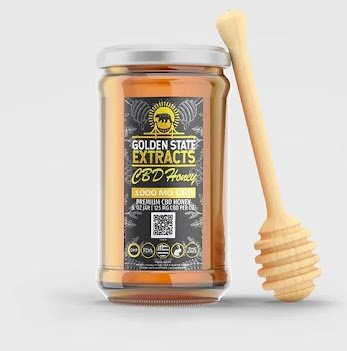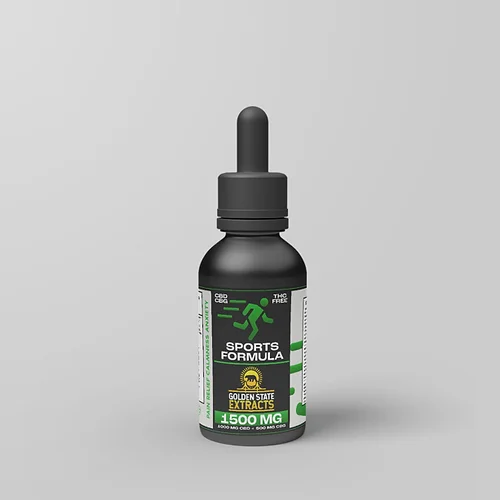What is the difference between CBD tincture and CBD oil?
Because the CBD sector is still in its early stages, firms may still get away with a lot in their marketing language. Unfortunately, this implies that mislabeling things and getting away with it is relatively simple. The phrase "tincture" is one of the most often misunderstood in the CBD lexicon.
When browsing for this phrase, you'll see that many firms use the words 1500mg CBD Tincture and CBD oil interchangeably. However, these names are not synonymous, and it is critical to comprehend the distinction between the two items.
Many companies use this to differentiate their goods from the competitors. Many will also produce inaccurate articles to support their fraudulent assertions. While CBD firms must follow tight guidelines when making medical claims about their products, there are no guidelines in place to ensure that goods are given the right label.
You may be asking why this is important. We think that consumers should have access to all available information when selecting CBD products. CBD oil and CBD tinctures are two distinct products, each with its own advantages. Companies must utilize these phrases appropriately in order for consumers to make an educated decision about what they are buying.
Fast facts about oils vs. tinctures
CBD products are sometimes mislabeled as tinctures rather than oils, and vice versa.
A tincture is a fairly particular product, and only a few CBD products labeled as tinctures fit the criteria. Alcohol must be used as a carrier in tinctures, and it may also include artificial additions.
Because of the alcohol concentration, taking a 1500mg CBD Tincture might create an unpleasant burning feeling.
Because tinctures include alcohol, they are not suited for everyone.
CBD oil is a cannabis extract combined with a carrier oil, often hemp oil or MCT oil derived from coconuts. They are typically entirely natural.
What exactly is a CBD tincture?
CBD tincture is not just another term for CBD oil. It's a subset of CBD products with a distinct production technique. Tinctures are created by employing alcohol as both a solvent and a carrier liquid. They are usually highly concentrated and include a variety of cannabinoids and other helpful plant chemicals.
Supercritical CO2 extraction may be replaced by solvent extraction. To extract the beneficial components, the plant matter is steeped in alcohol. This method requires more filtering of the final product, but it also shields the cannabinoids from oxidation, which may boost potency.
1500mg CBD Tincture is not only extracted in alcohol, but it is also given in alcohol. To disguise the bitter taste, high-proof alcohol is sometimes blended with sweeteners, flavorings, and vegetable glycerine. It may also include herbal extracts or health supplements.
What distinguishes a tincture from an oil?
The primary distinction between a tincture and an oil is the mode of administration. CBD oil combines cannabinoids with a carrier oil, often hemp seed oil or MCT oil from coconuts. The cannabinoids in a tincture are combined with high-proof alcohol.
CBD oil and tincture are often administered sublingually. The extra oil in CBD oil is ingested. The alcohol in a CBD Tincture 3000mg will evaporate, leaving just the cannabinoids and additions. Because 1500mg CBD Tincture may cause a burning feeling in the tongue, many may choose to mix it into their favorite foods or beverages instead.
CBD oil benefits
It is simple to choose your serving size.
Can be used topically and added to your favorite foods and beverages
Select your preferred strength and flavor.
Most are free of additives.
Contains a diverse mix of cannabinoids and plant components.
CBD oil disadvantages
It may be more expensive than other types of CBD.
Unflavored CBD may have an unpleasant, earthy taste at times.
The Benefits of CBD Tincture
It is simple to choose your serving size.
Can be mixed with your favorite foods and beverages.
Select your preferred strength and flavor.
The disadvantages of CBD tincture
Topical application is not permitted.
This is not a halal product.
A harsh flavor that some people dislike.
When taken sublingually, alcohol may cause a burning feeling. It may also include artificial additives.
It is not commonly distributed.
The word is often overused.
Which is more potent, CBD oil or tincture?
It all depends on the CBD concentration of the product. Because both items have the potential to be very powerful, there is no straightforward solution to this issue. The concentration of cannabinoids in a CBD product determines its potency, which is generally expressed as a percentage of the whole product or as mg. CBD oils are available in levels of up to 50% (5000mg in 10ml), but tinctures are only available in 10% concentrations (1000 mg in 10ml).
Bioavailability is a very other story. This relates to how much of the product is used by the body and how much is lost through metabolic processes. Because CBD oil and tincture are consumed in the same manner (under the tongue), their bioavailability will be similar. According to one research, this might be as high as 35%.
Conclusion
We only have CBD oils in our inventory for a purpose. We feel they provide a better and more accessible method of consuming CBD. We are likewise wary of stocking CBD tinctures that are improperly branded as such.
When it comes to presenting new items, education is crucial. Many businesses identify their CBD products as tinctures since they don't know any better. However, others are consciously capitalizing on the increased interest in and allure of more exotic-sounding goods, such as CBD Tincture 3000mg.
Examining the components is an easy approach to determine if you are purchasing a tincture or an erroneously labeled CBD oil. If the product comprises oil rather than alcohol, it is a CBD oil rather than a tincture. A tincture should also have an alcohol warning and be offered exclusively to individuals over the age of 18.


Comments
Post a Comment